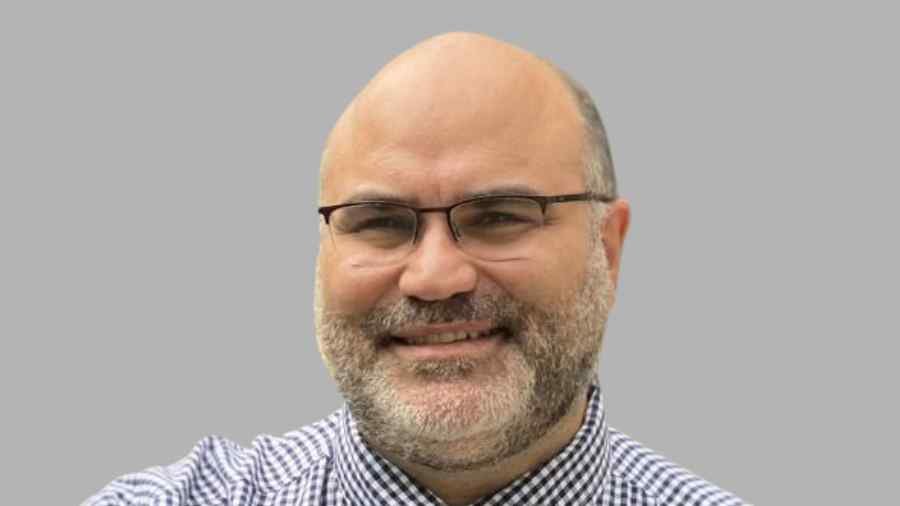Alex Frangi: The Visionary Pioneer of Computational Medicine and In-Silico Healthcare Innovation

In the rapidly evolving landscape of medical technology, few names have made as profound an impact as Alex Frangi. Recognised internationally as a leader in computational medicine, biomedical engineering, and artificial intelligence for healthcare, Frangi’s pioneering work has reshaped how scientists and clinicians model, analyse, and predict human health. His contributions have bridged the gap between engineering and clinical science, giving rise to a new discipline that fuses mathematics, imaging, simulation, and machine learning — all aimed at improving diagnosis, treatment, and patient outcomes.
Born in Argentina and trained across Europe, Alex Frangi’s career reflects an exceptional combination of scientific curiosity, engineering precision, and humanitarian vision. His ground-breaking research on computational physiology, medical image analysis, and in-silico clinical trials has established him as a global authority in the transformation of healthcare through digital innovation.
Early Life and Academic Journey
Alex Frangi, formally known as Alejandro F. Frangi, began his academic journey in Argentina before moving to Europe to pursue engineering studies. His intellectual curiosity led him to the Technical University of Catalonia in Barcelona, where he completed a degree in Telecommunications Engineering in 1996. During this time, Frangi’s fascination with the human body’s complexities grew alongside his passion for computational systems, inspiring him to explore how mathematics and technology could be applied to medicine.
He later obtained his PhD in Medical Imaging Sciences from Utrecht University in the Netherlands in 2001. His doctoral work, focusing on model-based cardiovascular image analysis, laid the foundation for a lifelong career in using computational models to simulate and understand the human body. This combination of engineering principles with biological systems would become the defining characteristic of his scientific legacy.
Career and Professional Milestones
After completing his PhD, Alex Frangi began his academic career at several leading research institutions across Europe. His early work in the Netherlands and Spain established him as a rising figure in medical imaging. He later moved to the United Kingdom, where he played a key role in developing interdisciplinary research that combined biomedical engineering, data science, and clinical medicine.
Frangi is currently the Bicentenary Turing Chair in Computational Medicine at the University of Manchester and holds the Royal Academy of Engineering Chair in Emerging Technologies. These prestigious titles underscore his influence in shaping the future of computational medicine.
He is also the founding director of the Centre for Computational Imaging and Simulation Technologies in Biomedicine (CISTIB), an international hub of excellence dedicated to advancing medical image computing and simulation. CISTIB has become a key contributor to medical innovation, particularly in developing tools that enable doctors and researchers to perform “virtual experiments” on digital replicas of human organs and systems.
The Birth of Computational Medicine
One of Alex Frangi’s greatest achievements is his role in shaping the emerging field of computational medicine — a discipline that applies computer modelling, imaging, and artificial intelligence to better understand disease processes. Unlike traditional medicine, which relies primarily on physical observation and clinical data, computational medicine creates virtual models that can predict how a disease will progress in an individual patient or how a new treatment will affect the body.
Frangi’s vision was to turn medicine into a science of prediction rather than reaction. By merging machine learning with mechanistic modelling, he has demonstrated how computers can simulate biological processes in ways that are faster, safer, and more precise than human observation alone.
The Concept of In-Silico Clinical Trials
Among his most transformative contributions is the concept of in-silico clinical trials. This approach uses advanced computational models to simulate medical devices, treatments, and patient responses on virtual populations. In other words, instead of testing new drugs or medical implants on real people or animals, researchers can now conduct digital experiments on computer models that behave like human bodies.
The potential impact of in-silico trials is enormous. They reduce costs, accelerate innovation, and significantly minimise ethical concerns associated with human and animal testing. Regulators and pharmaceutical companies are increasingly recognising this method as a reliable tool for early-stage validation of new treatments. Alex Frangi’s work in this area is helping to redefine how clinical trials are conducted worldwide.
Innovations in Medical Imaging and Simulation
Frangi’s research extends beyond theoretical science; he has created practical technologies that are widely used by the medical community. His team has developed powerful open-source software platforms such as GIMIAS (Graphical Interface for Medical Image Analysis and Simulation), a comprehensive framework for processing and visualising medical images. GIMIAS is now used by hospitals, research centres, and industry partners across the world for projects ranging from cardiovascular modelling to brain imaging.
Another notable initiative led by Frangi is MULTI-X, a health data analytics and modelling service that supports clinical decision-making by combining imaging data, computational models, and AI-driven insights. These innovations exemplify his commitment to making complex computational tools accessible and beneficial to clinicians and patients alike.
Research Impact and Global Recognition
Alex Frangi’s influence reaches far beyond the laboratory. He has published hundreds of scientific papers, earning thousands of citations across international journals. His h-index exceeds 70, a clear reflection of his academic excellence and sustained impact in his field.
Frangi has also been recognised by some of the most respected institutions in science and engineering. He is a Fellow of the IEEE (Institute of Electrical and Electronics Engineers), honoured for his pioneering work in medical image analysis and computational physiology. In addition, he has been named a Fellow of MICCAI (Medical Image Computing and Computer-Assisted Intervention Society) and SPIE (International Society for Optics and Photonics), affirming his position among the world’s most distinguished researchers in biomedical imaging.
He has also been awarded a European Research Council Advanced Grant, supporting his ongoing research into computational medicine and in-silico trials. This recognition places him among the top scientific leaders in Europe driving innovation in healthcare technology.
Bridging Engineering and Medicine
At the heart of Alex Frangi’s success is his ability to bridge two worlds that often operate separately: engineering and clinical medicine. He believes that medical progress depends not only on biological understanding but also on the tools and technologies that can model, interpret, and predict it. His approach represents a new paradigm of medicine — one in which data, mathematics, and digital models guide treatment as much as traditional observation does.
Through collaborations with clinicians, hospitals, and industry partners, Frangi has demonstrated how computational models can be used to support precision medicine, tailoring treatments to the unique characteristics of each patient. This approach helps doctors anticipate risks, improve surgical planning, and monitor the success of therapies with unprecedented accuracy.
Mentorship and Academic Leadership
Beyond his research achievements, Alex Frangi has played a crucial role as an educator and mentor. He has supervised dozens of PhD students and postdoctoral researchers who have gone on to become leaders in their own right. His collaborative and visionary approach has inspired a new generation of scientists to pursue interdisciplinary careers in biomedical technology and computational healthcare.
At the University of Manchester, he continues to lead large-scale projects that bring together engineers, clinicians, data scientists, and policy experts. His leadership ensures that computational medicine remains not only a scientific pursuit but also a practical tool for improving real-world healthcare.
Contribution to the Future of Healthcare
The implications of Frangi’s work extend far into the future of medicine. As artificial intelligence, cloud computing, and big data become integral to healthcare systems, computational modelling will play an even greater role in diagnosis, treatment, and drug development. Frangi’s research lays the foundation for hospitals of the future — where digital twins of patients could be used to test medical decisions before they are applied in reality.
His long-term vision aligns with global efforts to make healthcare more predictive, personalised, and preventative. By combining AI with simulation and imaging, he is helping transform healthcare from a reactive model to a proactive, precision-driven system.
Awards and Professional Influence
Over the years, Alex Frangi has received numerous honours for his contributions to science and technology. He is widely regarded as a thought leader who influences both academic research and industrial innovation. His presence at major conferences, keynote lectures, and global research initiatives highlights his ongoing commitment to advancing computational healthcare.
As part of international advisory boards and scientific committees, Frangi contributes to shaping policies and research priorities for digital medicine worldwide. His influence extends into regulatory discussions, helping governments and industry bodies adopt safe and effective computational methodologies in clinical research.
Personal Philosophy and Vision
What sets Alex Frangi apart is his deep belief that technology should serve humanity. His scientific philosophy combines compassion with computation — a belief that mathematical models and algorithms can ultimately improve human wellbeing. He often emphasises collaboration, transparency, and ethical responsibility in the use of AI in healthcare.
Frangi envisions a world where digital models complement doctors’ expertise, empowering them to make better, faster, and safer decisions. His approach redefines the doctor-patient relationship by adding a layer of predictive intelligence that enhances human care rather than replacing it.
Legacy and Continuing Work
As computational medicine continues to expand globally, Alex Frangi’s work remains at its core. His research groups continue to innovate across multiple medical fields, including cardiovascular modelling, neuroscience, and musculoskeletal imaging. Through ongoing partnerships with universities, hospitals, and private companies, his discoveries are not confined to theory — they are being actively implemented to save lives and improve patient outcomes.
Frangi’s enduring legacy lies not only in his scientific contributions but also in the new way of thinking he has inspired — one that treats healthcare as an interdisciplinary, data-driven, and computational science. His work will continue to guide future generations of researchers and clinicians towards a smarter, more humane healthcare system.
Conclusion
Alex Frangi stands as one of the most influential figures in modern medical science. His revolutionary work in computational medicine and in-silico clinical trials has transformed how the world understands and treats disease. By merging engineering precision with medical compassion, he has created a bridge between technology and humanity — a bridge that leads to a future where healthcare is faster, safer, and deeply personalised.
His vision of a digital, predictive healthcare ecosystem is no longer a distant dream but a growing reality. As research continues to evolve, the foundation laid by Alex Frangi will remain a guiding light for scientists, engineers, and clinicians striving to build a better, healthier world for all.



